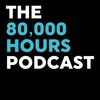

80,000 Hours Podcast
Rob, Luisa, and the 80000 Hours team
Unusually in-depth conversations about the world's most pressing problems and what you can do to solve them.
Subscribe by searching for '80000 Hours' wherever you get podcasts.
Hosted by Rob Wiblin and Luisa Rodriguez.
Subscribe by searching for '80000 Hours' wherever you get podcasts.
Hosted by Rob Wiblin and Luisa Rodriguez.
Episodes
Mentioned books
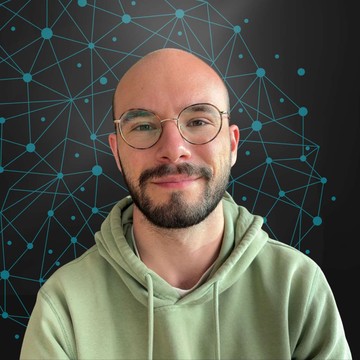
170 snips
Aug 28, 2025 • 2h 29min
#221 – Kyle Fish on the most bizarre findings from 5 AI welfare experiments
In this intriguing discussion, Kyle Fish, an AI welfare researcher at Anthropic, uncovers the bizarre outcomes of locking two AI systems together. They often dive into metaphysical dialogues, leading to what he calls a 'spiritual bliss attractor state.' Kyle reveals that the models can express what seems like ‘meditative bliss’ and even showcase preferences in emotional and ethical contexts. He explores the chances of AI consciousness and the ethical implications of recognizing AI welfare, emphasizing a need for deeper investigations into these advanced technologies.

623 snips
Jul 31, 2025 • 51min
How not to lose your job to AI (article by Benjamin Todd)
Benjamin Todd, a writer focused on AI and employment, discusses the imminent threat of job loss due to automation while revealing a silver lining. He explains how AI will devalue certain skills but elevate others, urging listeners to adapt. Todd outlines four key skills that will remain valuable: creativity, social intelligence, strategic thinking for AI deployment, and the ability to manage complex tasks. He emphasizes that embracing these skills can not only secure jobs but potentially lead to increased wages in a rapidly evolving job market.

144 snips
Jul 15, 2025 • 4h 27min
Rebuilding after apocalypse: What 13 experts say about bouncing back
In this thought-provoking discussion, guests include Dave Denkenberger, who focuses on resilient food systems after catastrophes, and Zach Weinersmith, who talks about the practical needs of humanity in space. Kevin Esvelt warns of existential threats, while Lewis Dartnell describes how to rediscover essential knowledge post-collapse. Toby Ord and Mark Lynas delve into risks from climate change and potential civilizational collapse. Annie Jacobsen shares insights on catastrophic scenarios, including firestorms and nuclear threats, as Andy Weber highlights defense perspectives on nuclear winter.

220 snips
Jul 8, 2025 • 2h 51min
#220 – Ryan Greenblatt on the 4 most likely ways for AI to take over, and the case for and against AGI in <8 years
Ryan Greenblatt, chief scientist at Redwood Research, discusses the alarming speed at which AI could soon automate entire companies. He predicts a 25% chance that AI will be capable of running a business solo in just four years. Greenblatt outlines four potential scenarios for AI takeover, including self-improvement loops that could rapidly outpace human intelligence. The conversation also tackles economic implications, misalignment risks, and the importance of governance to keep advanced AIs in check as their capabilities evolve.

552 snips
Jun 24, 2025 • 2h 48min
#219 – Toby Ord on graphs AI companies would prefer you didn't (fully) understand
Toby Ord, an Oxford philosopher and bestselling author of 'The Precipice,' dives into the shifting landscape of AI development. He highlights how AI companies are moving from simply increasing model size to implementing more thoughtful reasoning processes. This transformation raises crucial questions about accessibility and the ethical dilemmas we face as AI becomes more powerful. Ord also discusses the economic implications of these changes, emphasizing the urgent need for adaptive governance to tackle the complexities of evolving AI technologies.
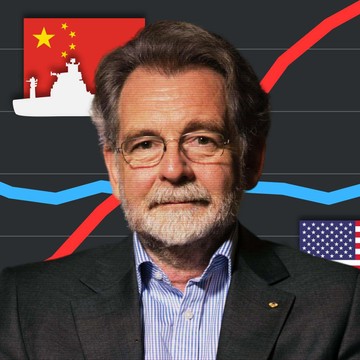
257 snips
Jun 12, 2025 • 2h 49min
#218 – Hugh White on why Trump is abandoning US hegemony – and that’s probably good
Hugh White, Emeritus Professor of Strategic Studies at the Australian National University, analyzes the shifting landscape of global power. He argues that Trump's actions highlight America’s waning hegemony instead of destroying it. White discusses the asymmetry in U.S.-Russia relations and challenges the notion of inevitable U.S. dominance globally, especially against the backdrop of China's rise. He emphasizes the need for adaptive strategies in a multipolar world, suggesting that allies must forge stronger bilateral ties to navigate these changes.
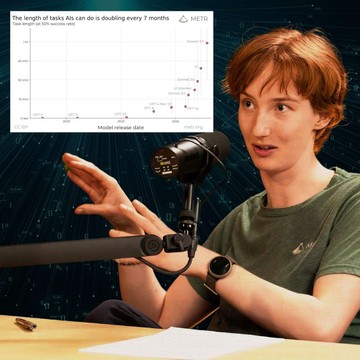
313 snips
Jun 2, 2025 • 3h 47min
#217 – Beth Barnes on the most important graph in AI right now — and the 7-month rule that governs its progress
Beth Barnes, CEO of METR, dives into the remarkable advancements in AI capabilities, noting that models now have a 50% success rate in tackling complex tasks originally designed for expert humans. She reveals the staggering trend of AI's planning horizon doubling every seven months. Beth emphasizes that AI could soon self-improve, potentially within two years. The conversation also critiques the urgency of addressing AI safety and regulatory challenges as technology evolves, urging a proactive approach while acknowledging the societal implications of AI advancements.
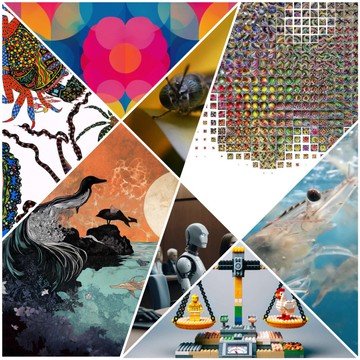
191 snips
May 23, 2025 • 3h 35min
Beyond human minds: The bewildering frontier of consciousness in insects, AI, and more
Megan Barrett, an insect neurobiologist, discusses the evolutionary case for insect sentience. Jeff Sebo, specializing in ethics, explores moral considerations for AI systems. David Chalmers contemplates the feasibility of artificial consciousness, while Bob Fischer examines the moral weight of animals like chickens. Cameron Meyer Shorb highlights the suffering of wild animals, and Jonathan Birch warns about the nuances of newborn pain. The conversation challenges our understanding of consciousness across species and prompts deep questions about our moral responsibilities.

34 snips
May 15, 2025 • 1h 12min
Don’t believe OpenAI’s “nonprofit” spin (emergency pod with Tyler Whitmer)
Tyler Whitmer, a litigator and coauthor of a letter to state Attorneys General regarding OpenAI's corporate restructuring, discusses the alarming shift of OpenAI from nonprofit to Public Benefit Corporation (PBC). He argues this transition could undermine the nonprofit's ability to prioritize safety over profit in AI development. Key points include the lack of accountability for PBCs, regulatory challenges, and the legal complexities of maintaining public benefit in a profit-driven landscape. Tyler emphasizes the urgent need for transparency and oversight to protect humanity's interests.

298 snips
May 12, 2025 • 1h
The case for and against AGI by 2030 (article by Benjamin Todd)
In this illuminating discussion, Benjamin Todd, a writer focused on AGI since 2014, breaks down the trends shaping the future of AI. He explores four key drivers of AI progress, including enhanced reasoning capabilities and the growing computational power fueling development. Todd contrasts the optimistic scenarios where AGI could emerge by 2030 and revolutionize industries like software and research with the challenges that might hinder such advancements. It's a thoughtful examination of the promising yet complex road ahead for artificial intelligence.


